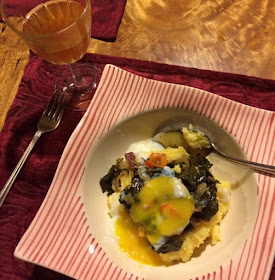This novel (which stands alone fine) is in Roberts' series of mysteries, entitled SPQR*, in which the investigator, is a Senator in the years 45-46 BC. The reason for it being the year of confusion, is partly due to Julius Caesar's decision to change the old calendar out for a new one. Yes, the Julian calendar. General unrest as a result, political scheming and various murders, connected with Cleopatra who is present in Rome with her own complications and agenda. A well developed tale, entertaining characters, and fascinating history, with a helpful glossary of relevant terms at the back. Can't wait to read more in this series.
From the Publishers: "Caius Julius Caesar, now dictator of Rome, has decided to revise the Roman calendar, which has become out of sync with the seasons. As if this weren't already an unpopular move, Caesar has brought in astronomers and astrologers from abroad, including Egyptians, Greeks, Indians, and Persians. Decius (the investigating Senator) is appointed to oversee this project, which he knows rankles the Roman public: "To be told by a pack of Chaldeans and Egyptians how to conduct their duties towards the gods was intolerable."
In the book, the characters were always having wine with various snacks, at one another's homes or in one tavern or another. Memorably there were stuffed hard boiled eggs, with anchovies, olive paste and vinegar added to the yolks, and broiled quail stuffed with pine nuts. Both of which dishes I'd like to try. However, I decided to make a simple Roman home style dish of polenta, with garlicky greens (adding some garum of course) and topped with a soft egg. Yummy yum yum.... Though the Romans of that time would have used another grain, corn not having yet arrived.
A little history of polenta from Life in Italy:
"In ancient times, what would later be called polenta started out as one of the earliest and simplest foods deriving from cereals. Made from wild grains and later from primitive wheat, farro (a popular Italian cereal), millet, spelt or chickpeas, the grain was mixed with water to form a paste and was then cooked on a hot stone. Polenta (or as they knew it, pulmentum) was a staple of the mighty Roman Legions, who would eat it either as porridge or in cake-like form, just as it happens today.
In Roman times, milling techniques had greatly improved and the coarsely ground flour favored for pulmentum had mostly been replaced by farina, a more thinly ground variety. However, even though bread was widely available in Ancient Rome, the legions and the poor alike preferred the simplicity and tastiness of their early polenta. For the next few centuries, nothing changed in the history of polenta, much like the living conditions of those who ate it most - the peasantry. However things would slowly improve for the dish, if not the peasantry - the first being the introduction of buckwheat into Italy by the Saracens.
This nutritive grain - known as grano saraceno - is still popular in Tuscany for making polenta and adds to the dish a distinctive flavor widely favored for centuries. Buckwheat polenta would eventually loose part of its popularity when a crop from the New World arrived in Italy, sometime in the 15th or 16th centuries: maize. The new crop was a perfect match for the farms of Northern Italy, where landowners could grow vast fields of corn for profit, while forcing the peasantry to subsist on cornmeal. This new form of polenta was abundant, but seriously lacking in nutrients compared to earlier forms of the dish."
Up until now, I have been cooking collards by the high heat, short stir fry in a wok method. The royal we decided to give Southern style collards a go. Two hours, slow and steady with some chopped onion, garlic a few shakes of chili peppers, a tablespoon of fish sauce and broth to cover. Much more tender, and very flavorful. I like it. A lot. After all, I am from Southern California originally. Pretty far South :)
This post will go over to the January Foodies Read Challenge, hosted by Heather, and to Beth Fish Reads for her Weekend Cooking event.
* " SPQR is an initialism of a phrase in Latin: Senātus Populusque Rōmānus ("The Roman Senate and People", or more freely as "The Senate and People of Rome" and was used on official correspondence, documents, and public works.





I can see why you are on a Roman kick. I LOVED Feast of Sorrows.
ReplyDeleteLots of interesting information here! The polenta dish looks inviting
ReplyDeleteI love Robert Harris! We always cook our collards like any other green and have resisted the southern long-cook method. Maybe I'm missing out! Love your Roman kick, and I have to put the SPQR books on my list.
ReplyDeleteThat’s a fascinating history. In France, there’s also an acknowledgement of the origins of buckwheat, because buckwheat crepes are called “crepes sarasin” — obviously for the same reason.
ReplyDeletebest... mae at maefood.blogspot.com
I have resisted collard greens in any form. I need to be more open-minded and will try the slow-cook method! I love polenta, however, in any form, but especially cooled, sliced, and pan-fried until in butter or olive oil!
ReplyDeleteYour post has made me want to go to Rome again; I'll have to console myself with Roman-style food instead.